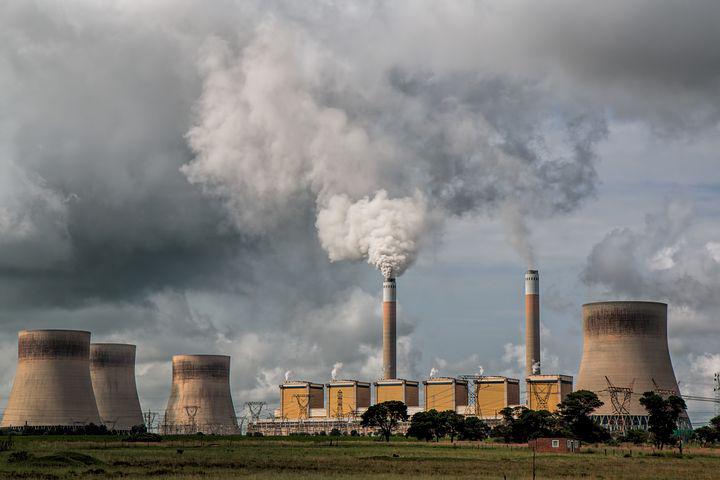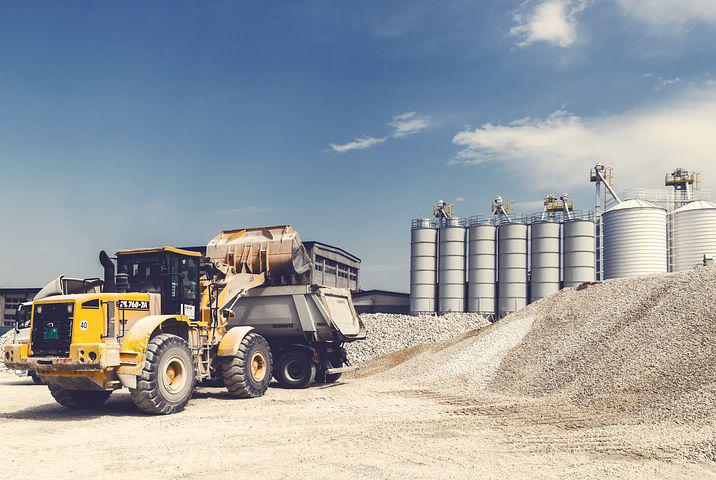Best Paying Jobs In Oil & Gas Production 2022 or Highest Paying Oil And Gas Jobs. Oil and gas jobs are in demand like never before. In the United States alone, there are roughly 500,000 oil field jobs that need to be filled. When you factor in overseas jobs, this number is multiplied many times over. The problem for oil and gas companies isn’t finding buyers for their product the entire world depends on oil and natural gas to fuel its economy.

The problem is finding enough trained technicians who can fill all of the open positions in the industry. Our goal with this article is to shine a light on these high paying oil & gas industry jobs so that if you have an interest or background in any of them, you can pursue a career or better position in this exciting industry.
Best Paying Jobs In Oil & Gas Production 2022 | Highest Paying Oil And Gas Jobs
Here are some of the best paying (and most highly sought after) roles in the oil & gas production field:
1. Geophysicist
A geophysicist is a person who studies the physical properties of the earth and its gravitational field. They use this information to find resources like oil, gas, minerals, groundwater and aquifers. Geophysicists work in all sectors of the oil and gas industry including exploration and production (E&P), reservoir engineering, drilling engineers, seismic processing etc.
Geologists are often required for land-based projects such as mining or construction companies. Geophysical engineers may focus on survey design or analysis of data that was collected by others rather than collecting their own data from scratch.
2. Petroleum Engineer
Petroleum engineers design and oversee the development of oil and gas wells and the equipment used in the process. These individuals must have a bachelor’s degree in engineering and a master’s degree in petroleum engineering from an accredited university. Petroleum engineers also need to pass an examination administered by the National Society of Professional Engineers (NSPE).
The Bureau of Labor Statistics predicts that employment among petroleum engineers will grow by 9% between 2016 and 2026, which is faster than average for all occupations. The median annual wage for these professionals was $124,180 as of May 2018.
3. Rig Manager
Rig managers are responsible for the day-to-day operations of a drilling rig. They’re in charge of the safety and maintenance of their crew, as well as making sure that their crew performs at peak efficiency.
In addition to ensuring the health and safety of your fellow workers, you will also be responsible for managing projects related to drilling activity. This means that you’ll have to ensure that all equipment is maintained in good condition, which can be difficult if you have multiple crews working on different sites or continents.
You will also be tasked with ensuring that all regulatory standards are met during your projects a task that requires extensive knowledge about industry regulations and how they affect daily work life on various types of drill rigs throughout various regions around the world.
4. Field Service Engineer
Field Service Engineers are responsible for the maintenance, repair and installation of equipment. They work in the field, so they’re exposed to the elements. This is a great job if you like working with your hands and are good at diagnosing problems that arise on site. The best part about this job is that it allows you to travel around different locations where you can meet new people and explore new places!
5. Wellsite Geologist
As the name suggests, this job involves working on the site of an oil or gas well. A wellsite geologist is responsible for studying the geology of a particular area near where a well will be drilled, as well as looking for potential problems with drilling.
Wellsite geologists make sure that wells are being drilled safely and cost-effectively. They also oversee subcontractors who are hired to work on specific aspects of drilling operations such as finding water sources or constructing roads needed by heavy equipment used in drilling operations.
6. Operations Geologist
An operations geologist is responsible for the geological aspects of oil and gas operations. The operations geologist performs reservoir analysis and evaluation, which includes:
- Evaluating the reservoirs to ensure they are suitable for drilling
- Establishing reserves for existing wells
The operations geologist also:
- Determines where to drill new wells based on market conditions, production data from existing wells, and seismic surveys (which use sound waves to create images of underground rock formations).
7. Offshore Installation Manager
An offshore installation manager is responsible for the installation, operation and maintenance of offshore oil and gas platforms. This person is also responsible for the safety of their team, as well as the safety of the platform and environment.
Their duties include:
- Planning installation activities
- Managing people onsite during construction phases
- Supervising production operations once it begins operating
8. Production Engineer
Production engineers are responsible for the design, construction, and operation of oil and gas production facilities.
As a Production Engineer you will be responsible for:
- Designing and implementing new processes in order to increase efficiency of an existing process or product
- Improving or optimizing existing processes or products by eliminating waste and improving energy efficiency
- Recommending changes that can be made to improve efficiency when there is a problem with equipment
9. Drilling Superintendent
The drilling superintendent is responsible for supervising the drilling of oil and gas wells. They supervise the operations, maintenance and safety of the drilling rig. The drilling superintendent also ensures that all required permits are obtained prior to commencement of a well.
In addition to these duties, they may have additional responsibilities such as supervising personnel or managing budgets within a company.
The average salary for this position is approximately $90k per year with overtime payments bringing earnings closer to $120k annually on average.
10. Drilling Engineer
The drilling engineer is responsible for the drilling process. He/she plans and directs a well to be drilled, including where, how deep and what type of equipment should be used.
The drilling engineer must also ensure that there are no problems with any equipment or tool on the rig while it’s being drilled. If a problem occurs, he/she makes sure that it’s fixed immediately so as not to interrupt or hinder progress in any way.
The job description of a drilling engineer includes:
- Planning and directing wells to be drilled
- Making sure that all required permits have been obtained from regulatory agencies such as state environmental protection departments before beginning work on an oil or gas well project
- Ensuring that necessary equipment is available at each site during field operations; if not available locally then arranging shipment from supplier via helicopter etc
- Ensuring proper functioning of all tools throughout whole operation
- Reporting findings back up top level management
11. Maintenance Supervisor
As a maintenance supervisor, you’ll be responsible for overseeing the daily operations of your team as they perform maintenance activities. You’ll also be responsible for ensuring that all equipment is properly maintained and in good working order.
You should have at least three years of experience in oil and gas production to qualify as an entry-level maintenance supervisor. The average starting salary is $66,000 per year but can go up to $75,000 per year after additional training and experience.
Maintenance supervisors usually need a bachelor’s degree or higher (like an associate’s degree) but some employers may accept candidates with only a high school diploma or GED certificate instead. Some employers may provide on-the-job training so it’s important to ask about this prior to applying for jobs within this field!
12. HSE Advisor
As the name suggests, HSE Advisor is the person who advises the company on the safety and health of its employees. The role of an HSE advisor is very important because they are responsible for making sure that all employees are safe at work.
In order to do this, they have to conduct audits in order to ensure that everyone has been trained on what they need to do in case something goes wrong as well as reviewing their policies regularly so they can keep up with any changes that may occur.
A good HSE advisor should also work closely with other departments such as human resources in order to ensure there is a good working relationship between everyone involved with making sure people are safe at all times while working within an organization (which includes contractors).
13. Subsea Engineer & ROV Pilot (Remotely Operated Vehicle)
As a subsea engineer or ROV pilot, you’ll work in harsh conditions. You’ll be on the ocean floor sometimes in water so deep you can’t see any light. Your job is to design and install equipment that will help oil and gas companies find new sources of fossil fuels.
As a subsea engineer, you’re responsible for designing and installing equipment such as pipelines, valves, manifolds and umbilicals that connect production platforms on the surface with wells on the ocean floor. In addition to being skilled in mathematics and computer science (you’ll be using sophisticated software), this role requires extensive knowledge of marine biology because you’ll be working around fish habitats.
This can involve up to eight hours each day underwater in a wet suit while maintaining physical fitness levels required by working at high altitudes above sea level due to pressure changes experienced during dives as well as high risk factors involved with every dive operation which may include exposure hazards such as fatigue related illnesses or injuries caused by overexertion during long duration operations under water (elevated pressures) without proper rest breaks during long durations underwater depth restrictions imposed on divers due limited visibility & mobility constraints imposed due constant adverse weather conditions such as strong currents/turbulence & extreme temperatures etcetera).
14. Business Development Manager
If you’re a business development manager for oil and gas industry companies, your job is to coordinate the activities of sales force, market research, and advertising. You are responsible for creating new products or services that can be sold to the consumers. Your main role is to find out ways of increasing revenue through targeting new or existing customers with appropriate marketing campaigns.
A successful business development manager must have good interpersonal skills as well as negotiation skills. They should also be able to work under pressure since they are required to meet tough deadlines.
15. Reservoir Engineer – Reservoir Management and Reservoir Studies
A Reservoir Engineer is responsible for ensuring that the reservoir in an oil and gas well is properly managed. This job requires a lot of technical knowledge, as you will be asked to perform reservoir studies, design wells and recommend procedures for drilling. If you have experience managing projects or performing geological analysis, this could be an excellent career choice for you.
Besides having excellent communication skills and being a team player, it’s also important that you do well at school because many companies require extensive training programs before they will consider hiring someone with this title. An advanced degree might be required depending on your chosen discipline and the type of company that hires you
Conclusion
We hope you found this list of high paying oil and gas jobs useful. If you’re looking for your next career move in the energy field, we invite you to check out our job board where employers are hiring professionals with experience working in oil and gas. Best Paying Jobs In Oil & Gas Production 2022 | Highest Paying Oil And Gas Jobs






